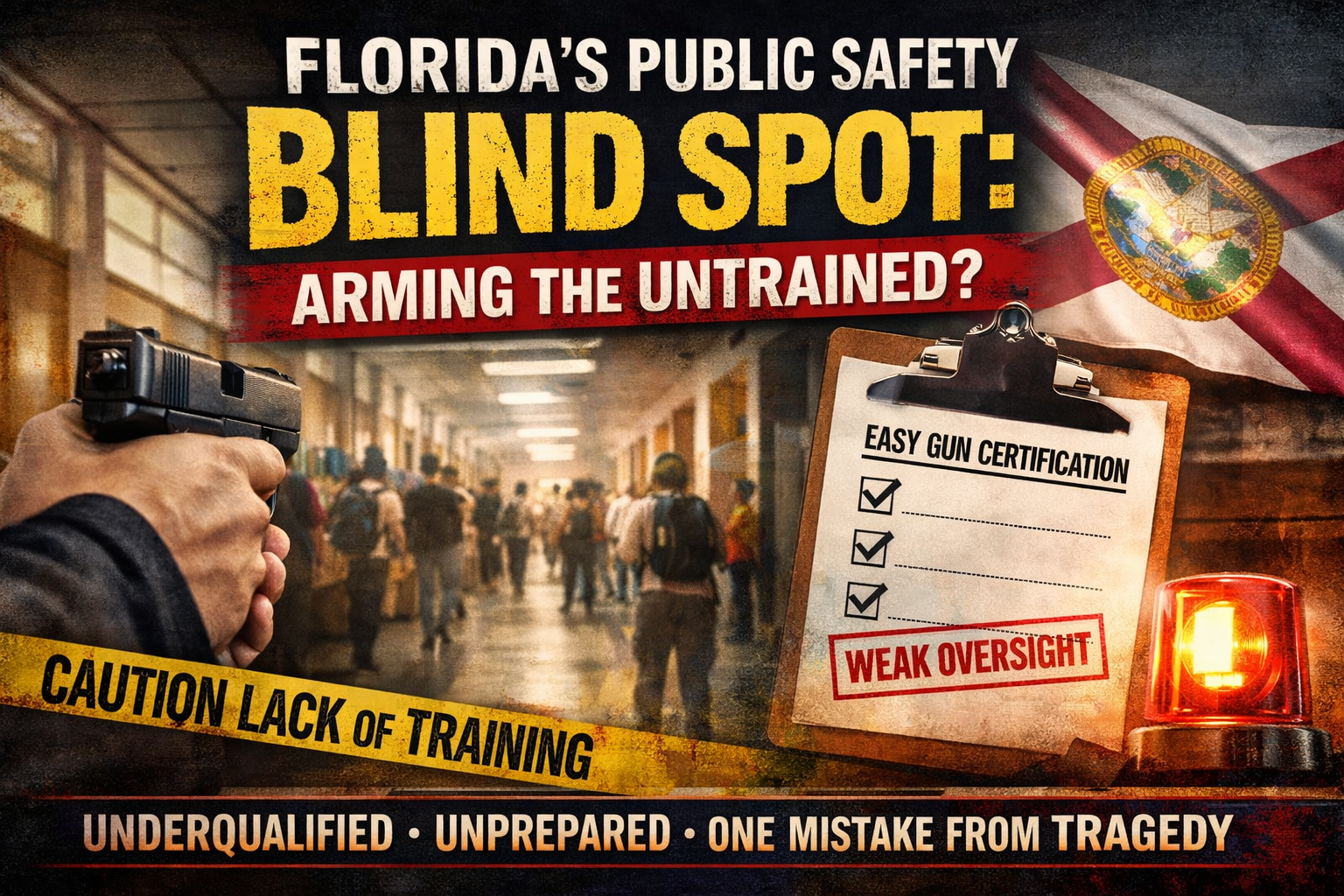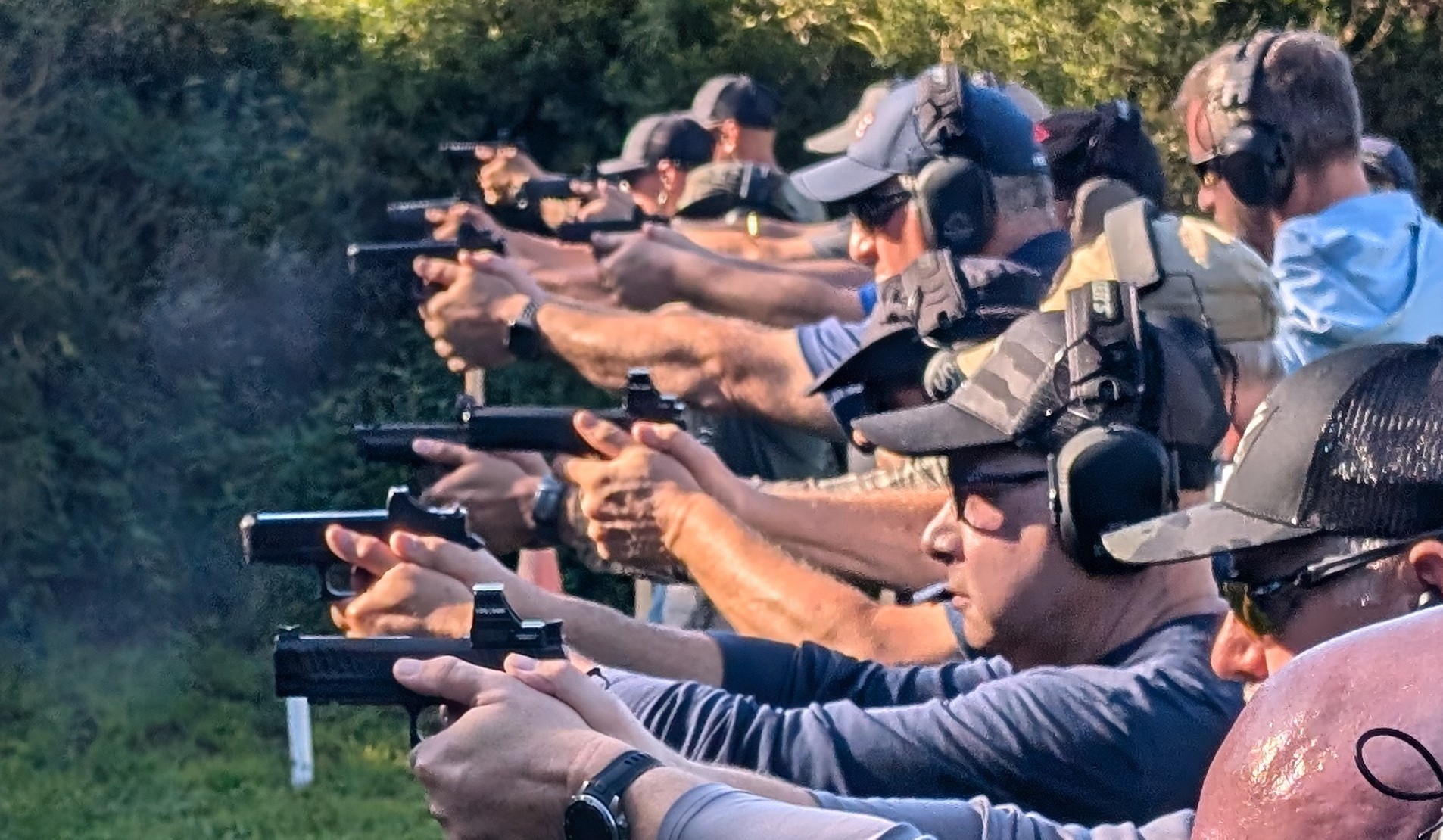What Happens When You Break the Law But Act to Save a Life?
By Management | Tactical Edge Blog
Every concealed carrier has trained for it: the moment when they may need to draw their firearm to stop a deadly threat. But what if, in that moment, you’re already breaking the law?
It’s a legal paradox more common than most people realize. You’re armed, but unintentionally violating state law—perhaps carrying where you shouldn’t. Then something happens. A threat emerges. Lives are in danger. And you’re the only one in a position to stop it.
What happens when self-defense collides with illegal possession?
This article takes a hard look at Florida’s firearm statutes, the concept of “necessity” as a legal defense, and the complexities concealed carriers may face when doing the right thing doesn’t line up neatly with the letter of the law.
Scenario 1: Girls’ Night Gone Wrong — A Gun in a Bar
🔍 Case Study: Real-World Complication
You’re the designated driver. You walk into a bar to meet your friends. You’re not drinking—just catching up. But halfway through the evening, you remember something: your concealed firearm is still in your purse.
In Florida, carrying a firearm into a bar where alcohol is consumed is illegal under Florida Statute §790.06(12). You make a mental note to leave—but then chaos erupts.
A man breaks a bottle and lunges at a woman. You instinctively move to intervene. As he turns toward you, threatening with a broken bottle, you reach into your purse.
Now what?
🚫 You Are No Longer Protected by “Stand Your Ground”
Florida’s Stand Your Ground law (Florida Statute §776.012(2)) allows you to use deadly force to prevent imminent death, great bodily harm, or a forcible felony—but only if you are not engaged in a criminal activity and are in a place where you have a legal right to be.
Because you’re unlawfully carrying in a bar, you no longer meet that requirement. Legally speaking, you’re now:
-
Engaged in a criminal activity, and
-
Not in a place you have a right to be while armed.
As a result, the law would require you to attempt to retreat before using deadly force—even if the threat is imminent.
💡 Training Takeaway
Even minor oversights—like forgetting to secure your firearm—can put you at odds with critical self-defense laws. Instructors should emphasize legal readiness as much as tactical skill. Knowing when and where you can carry is as vital as knowing how to draw and shoot.
Scenario 2: The School Shooter — You Act, But Cross a Line
🔍 Case Study: A Moral Imperative Meets Legal Risk
You live next to an elementary school. Home sick for the day, you hear gunfire. You grab your firearm, rush outside, and see a masked man entering the school with a rifle.
You follow, firing as he raises his weapon toward a classroom of children. You stop him. Lives are saved. But as the police arrive, questions surface:
-
You brought a firearm onto school property, which is prohibited by Florida law.
-
You didn’t attempt to retreat before using deadly force.
⚖️ What Protects You Legally?
The answer: the “Necessity Defense.”
Florida recognizes necessity as an affirmative defense to a crime—including firearm-related offenses. This means you may be arrested and charged, but a jury can still find your actions legally justified if they meet six criteria:
✅ The Six Requirements of the Necessity Defense:
-
You reasonably believed an emergency existed.
-
The threat was real, imminent, and not caused by you.
-
The emergency posed significant harm to yourself or others.
-
You had no reasonable alternative but to break the law.
-
Your actions were taken solely to prevent the greater harm.
-
The harm you avoided outweighed the harm of breaking the law.
🧠 Jury Interpretation Matters
Necessity doesn’t erase the crime—it explains it. It gives a jury the legal framework to conclude that while you broke the law, your actions were justified by an urgent, life-threatening circumstance.
This is the gray zone where ethics and legality intersect.
Why These Scenarios Matter
These aren’t just legal hypotheticals—they’re real dilemmas concealed carriers can face.
A concealed carrier who acts to defend others may still find themselves charged with a felony if they’re:
-
Carrying in a prohibited location (e.g., bar, school, government building),
-
In possession of a firearm while under a legal restriction, or
-
Acting outside the scope of “Stand Your Ground” protections due to technicalities.
Key Lessons for Responsible Gun Owners
-
Know where you can carry. Florida law specifically outlines restricted locations. Review §790.06 and §790.115 carefully.
-
Be prepared to retreat in places where Stand Your Ground doesn’t apply.
-
Understand necessity, and be prepared to articulate your decision-making in court if required.
-
Train for more than marksmanship. At Valortec, we emphasize scenario-based legal training alongside live fire because self-defense doesn’t stop with the shot.
-
Consider legal protection services. Memberships like Firearms Legal Protection or U.S. LawShield may assist in legal defense—but knowing the law remains your first line of defense.
Final Word: Be Armed with Knowledge—Not Just a Firearm
In Florida, the law is nuanced. Your intentions may be noble. Your actions may save lives. But if you’re not legally where you’re allowed to be with a firearm, your rights to use it in defense are restricted—and your freedom may hang in the balance.

